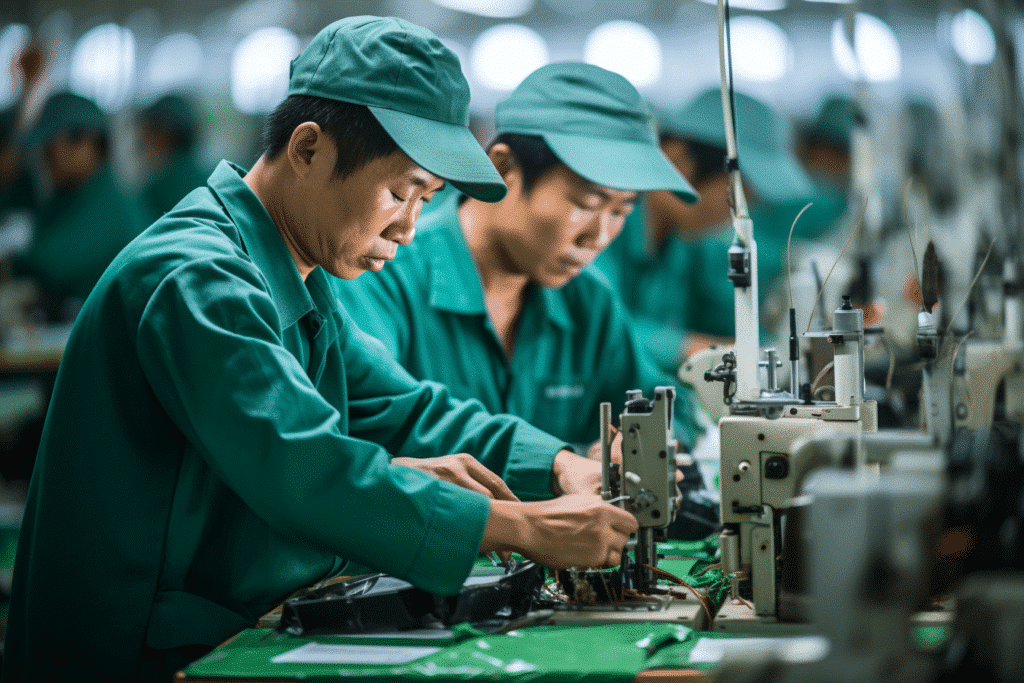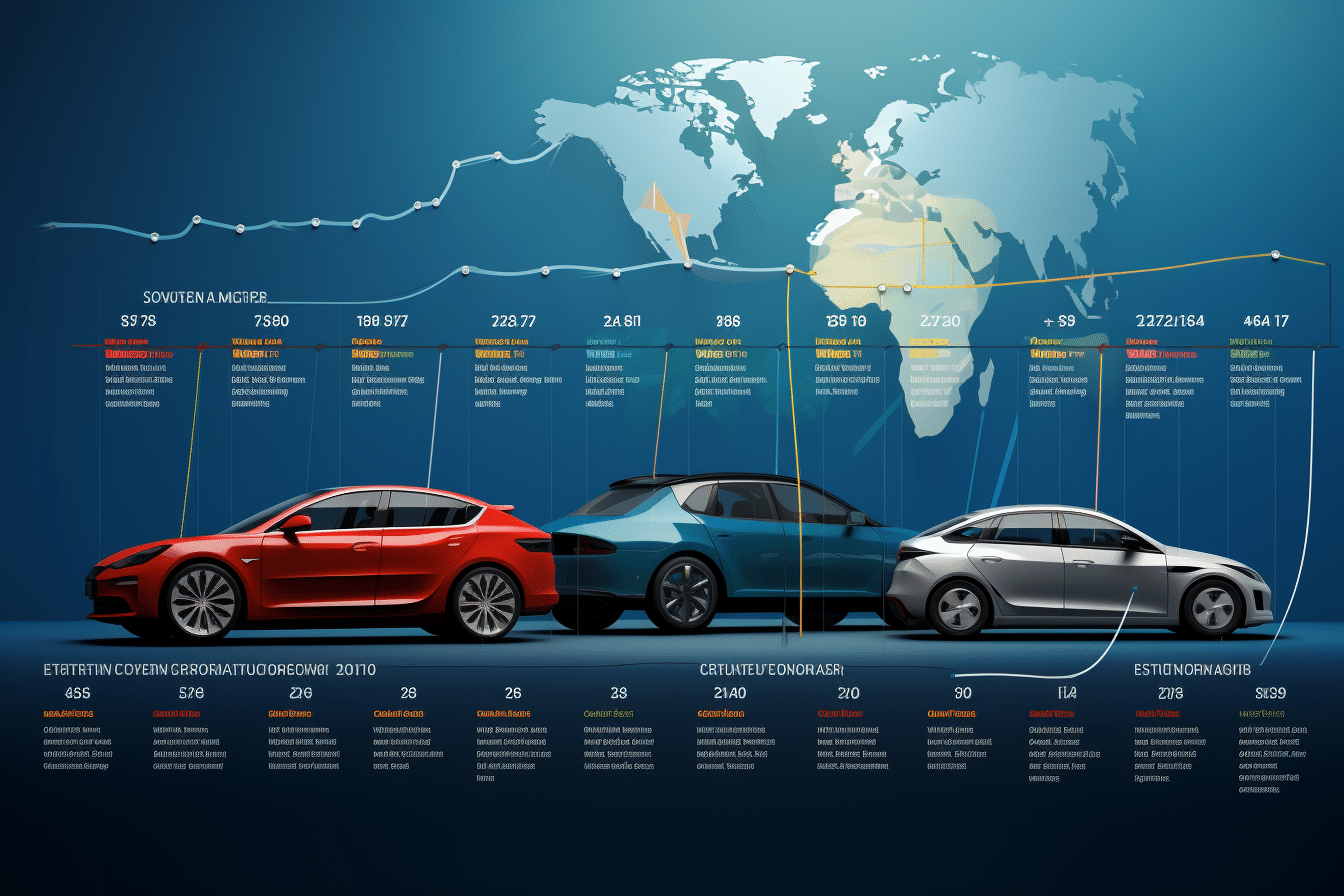Europe is increasingly importing cars and machines from China instead of Germany
German companies are facing increasingly stronger competition from Chinese rivals in their European home market, as indicated by a study conducted by the Institute of German Economy (IW).
Experts predict that this pressure is likely to continue rising. Particularly noteworthy is that this competition involves not just easily producible goods like textiles or face masks, but also more technologically advanced products.
The analysis by IW highlights that especially in the realm of high-value industrial goods, the proportion of Chinese companies contributing to imports in EU countries has risen, while the share of German companies has declined.
In the year 2000, 2.5% of EU imports in this sector originated from China, compared to 17.7% from Germany. By 2022, China had increased its share to 13%, while the German share had fallen to 15.5%.
According to the study, “Chinese gains and German losses in market share often go hand in hand.” A concrete example of this is in the field of mechanical engineering: The proportion of Chinese machinery manufacturers in EU imports rose from 6.8% in 2010 to 11.4% in the previous year.
The automotive sector also illustrates China’s catching up. Although the proportion of Chinese cars in EU imports is still quite small compared to the German share, IW data show a clear trend: China’s share of auto imports in the EU was at 0.1% in the year 2000 – by 2022, it had already reached 3.5%.
This development is not new and is supported by other analyses. The Federal Agency for Foreign Trade Promotion, Germany Trade and Invest (GTAI), recently concluded that Chinese companies are increasingly reaching or even surpassing their German competitors in the global market.
From 2000 to 2020, China’s share of global exports rose by over eleven percentage points to about 15%, while the proportion of the German economy remained nearly unchanged at around eight percent.
One reason for the weakening of the German export economy in the European market could be the increased energy costs for German companies. For months, the German economy has been lamenting high electricity prices that are impacting Germany’s competitiveness. In contrast, China supports its companies throughout the entire value chain through subsidies.

Export should compensate for the weak consumption
Although imports from China to the EU experience fluctuations and showed a slight decrease at the beginning of the year, experts predict that these declines are only short-term episodes. They anticipate that the pressure on German companies in export markets will continue to rise.
One cause of increasing competition is China’s long-standing weak domestic consumption. Factors such as significant technological advancement in Chinese companies and targeted support from the Chinese government also contribute to this.
In the USA and Germany, domestic consumption constitutes a significantly larger portion of the economic output compared to China. The COVID-19 pandemic and the Chinese government’s response to it have further weakened consumer demand in the country.
According to data from the consulting firm PwC, the share of consumption in China’s economic growth decreased to about one-third last year. While Europe and the USA provided direct financial support to households in response to the coronavirus, China focused on further subsidizing the supply side.
Although there are signs that the Chinese leadership intends to strengthen domestic consumption, the State Council of China, a sort of country’s cabinet, released a 20-point plan in late July to encourage the Chinese population to spend money.
Until these measures take effect, it is expected that the Chinese government will continue to emphasize promoting exports through subsidies.
Furthermore, China is in the process of catching up technologically and poses growing competition, even in the realm of innovative products.
The number of licenses granted by German research institutions and companies to China for the use of German technology has significantly increased in recent years. Additionally, cases of industrial espionage have been observed.

China is becoming a major exporter of cars
Observers express concerns that the next focus could be on the automotive market. Eunice Lee, an automotive expert at the analysis firm Bernstein, estimates that Chinese companies already have the capacity to produce around 40 million electric cars annually. However, the demand in China itself is only for 20 to 25 million electric cars.
Since the year 2020, China’s car exports have greatly increased. It should be noted that not all cars produced in the People’s Republic of China come from Chinese companies. For example, Tesla manufactures vehicles in Shanghai for the global market. Additionally, the demand for Chinese cars from Russia has significantly increased due to sanctions.
In 2022, China surpassed Germany and became the world’s second-largest car exporter. This year, the People’s Republic has taken the lead among car exporters.
